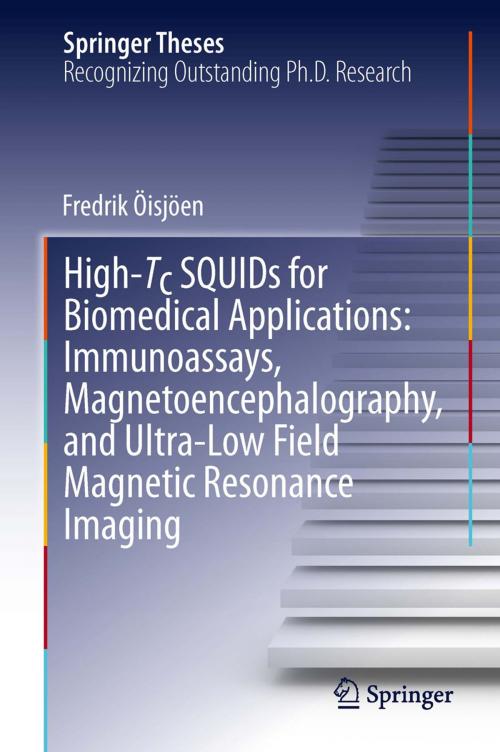High-Tc SQUIDs for Biomedical Applications: Immunoassays, Magnetoencephalography, and Ultra-Low Field Magnetic Resonance Imaging
Nonfiction, Science & Nature, Technology, Nanotechnology, Engineering| Author: | Fredrik Öisjöen | ISBN: | 9783642313561 |
| Publisher: | Springer Berlin Heidelberg | Publication: | July 25, 2012 |
| Imprint: | Springer | Language: | English |
| Author: | Fredrik Öisjöen |
| ISBN: | 9783642313561 |
| Publisher: | Springer Berlin Heidelberg |
| Publication: | July 25, 2012 |
| Imprint: | Springer |
| Language: | English |
This thesis describes the challenging task of developing high critical temperature superconducting quantum interference devices (high-Tc SQUIDs) and using them as sensors for biomedical applications, including magnetic immunoassays, magnetoencephalography and magnetic resonance imaging (MRI). The first part of this work discusses the development of fast magnetic immunoassays, which can be used to improve the sensitivity, or to create new, unique point-of-care diagnostics systems. The second part shows that high-Tc SQUIDs might make magnetoencephalography more available, thus opening the field of high-Tc SQUID-based magnetoencephalography for recording brain functions. This technique can be combined with ultra-low field MRI which is discussed in the last part. This combination may provide a new unique tool for studies of brain functions. This work does not simply improve on existing technology but opens possibilities for novel advanced medical devices and techniques.
This thesis describes the challenging task of developing high critical temperature superconducting quantum interference devices (high-Tc SQUIDs) and using them as sensors for biomedical applications, including magnetic immunoassays, magnetoencephalography and magnetic resonance imaging (MRI). The first part of this work discusses the development of fast magnetic immunoassays, which can be used to improve the sensitivity, or to create new, unique point-of-care diagnostics systems. The second part shows that high-Tc SQUIDs might make magnetoencephalography more available, thus opening the field of high-Tc SQUID-based magnetoencephalography for recording brain functions. This technique can be combined with ultra-low field MRI which is discussed in the last part. This combination may provide a new unique tool for studies of brain functions. This work does not simply improve on existing technology but opens possibilities for novel advanced medical devices and techniques.















